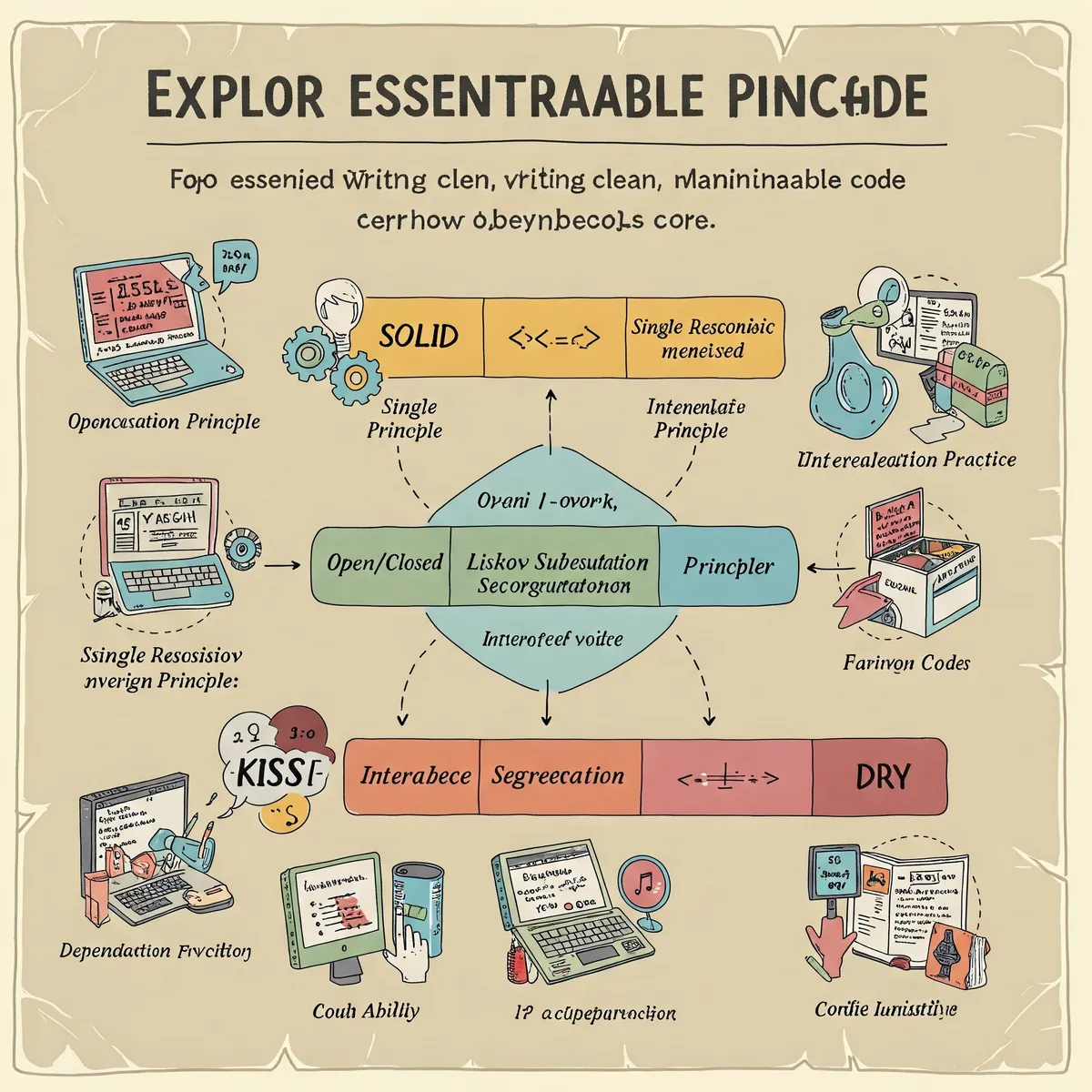Writing clean and maintainable code is one of the most important aspects of professional software development. Following a few proven principles can make your code easier to extend, debugand understand.
Let’s begin with the SOLID principles—five object-oriented programming principles introduced by Robert C. Martin (Uncle Bob), a well-known author in the field of software engineering.
SOLID Principles
1. Single Responsibility Principle (SRP)
Definition: Every module or class should have only one responsibility.
Explanation: When writing code, each class should be focused on performing a specific task. A class should not be overloaded with multiple, unrelated responsibilities. Keeping responsibilities separated makes your code easier to understand and maintain.
2. Open/Closed Principle (OCP)
Definition: Software entities should be open for extension but closed for modification.
Explanation: You should be able to extend the functionality of a class without modifying its existing code. This reduces the risk of introducing bugs in already-tested code. In practice, this means using inheritance or interfaces to add new features rather than altering existing logic.
3. Liskov Substitution Principle (LSP)
Definition: Subclasses should be substitutable for their base classes.
Explanation: If you have a function defined in a base class, the subclass must be able to implement it in a way that maintains the same expected behavior. This ensures that derived classes can be used in place of base classes without affecting the correctness of the program. It builds upon the Open/Closed Principle by enforcing behavioral consistency.
4. Interface Segregation Principle (ISP)
Definition: A client should not be forced to depend on interfaces it does not use.
Explanation: Instead of creating large interfaces with many unrelated methods, break them down into smaller, more specific ones. Classes should only implement what they actually need. This results in more flexible and modular code.
5. Dependency Inversion Principle (DIP)
Definition: High-level modules should not depend on low-level modules. Both should depend on abstractions. Abstractions should not depend on details. Details should depend on abstractions.
Explanation: Introduce abstractions (like interfaces or abstract classes) between high-level and low-level modules. This decouples system components, making them easier to test and maintain. Low-level components should implement contracts defined by high-level policies.
Other Key Principles
KISS – Keep It Simple, Stupid
This principle emphasizes writing code as simply as possible. Avoid unnecessary complexity. Simple code is easier to read, debugand extend—not only for you but also for your teammates in the future.
YAGNI – You Aren't Gonna Need It
Originating from Extreme Programming, this principle advises against writing code "just in case." Don’t implement functionality until it is actually required. Avoid wasting time on features that may never be used.
DRY – Don't Repeat Yourself
Avoid duplication in your code. Repeating logic or code blocks across classes makes maintenance difficult. Instead, aim to abstract repeated logic into reusable methods or components.
Conclusion
Clean code is more than just readable syntax—it's about making thoughtful design decisions that improve the longevity and maintainability of your software. By applying principles like SOLID, KISS, YAGNIand DRY, you make your codebase more professional, scalableand easier to work with.
